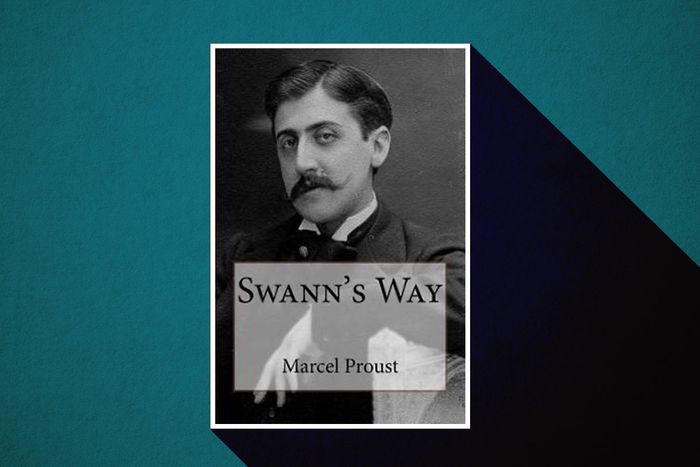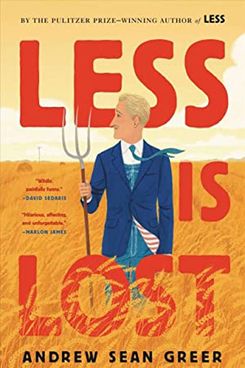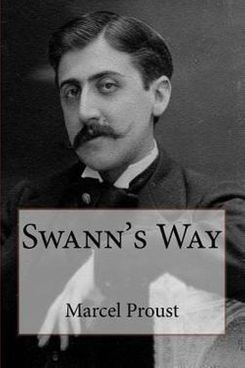
Andrew Sean Greer let me in on a secret about the protagonist of his Pulitzer Prize–winning novel, Less: Arthur Less is having a lot of sex throughout the book, though readers may not be aware of it. For Greer, the quiet, charged moments just before the act itself make great sex writing great. He is compelled by the held hands, the sly glances, the brushed shoulders, and the revelation of learning that somebody wants you as much as you want them.
It’s no surprise, then, that Greer selected a passage from Marcel Proust’s Swann’s Way as the best sex scene he has ever read — even though no sex occurs in it. Here, Swann has been searching everywhere for his mistress, Odette. They are finally united in a cab, moments before their first time having sex. The tension arises out of small gestures fraught with enormous feelings — how Odette bends her neck, how Swann touches her cheek — and his realization that, after this, he will never know an Odette he has not kissed. It is a masterfully patient section and one with all the qualities Greer aspires to create when writing sex scenes. It is suggestive and charged, sexy for how it captures the thrilling ache of desire, the fleeting but seemingly endless moments before you finally get what you want. You can read the scene below, followed by more from Greer about what he appreciates.
Still smiling, she shrugged her shoulders ever so slightly, as who should say, “You’re quite mad; you know very well that I like it.”
He ran his other hand upwards along Odette’s cheek; she gazed at him fixedly, with that languishing and solemn air which marks the women of the Florentine master in whose faces he had found a resemblance with hers; swimming at the brink of the eyelids, her brilliant eyes, wide and slender like theirs, seemed on the verge of welling out like two great tears. She bent her neck, as all their necks may be seen to bend, in the pagan scenes as well as in the religious pictures. And in an attitude that was doubtless habitual to her, one which she knew to be appropriate to such moments and was careful not to forget to assume, she seemed to need all her strength to hold her face back, as though some invisible force were drawing it towards Swann’s. And it was Swann who, before she allowed it, as though in spite of herself, to fall upon his lips, held it back for a moment longer, at a little distance between his hands. He had wanted to leave time for his mind to catch up with him, to recognise the dream, which it had so long cherished and to assist at its realisation, like a relative invited as a spectator when a prize is given to a child of whom she has been especially fond. Perhaps, too, he was fixing upon the face of an Odette not yet possessed, nor even kissed by him, which he was seeing for the last time, the comprehensive gaze with which, on the day of his departure, a traveler hopes to bear away with him in memory a landscape he is leaving forever.
In my new book, Less doesn’t get laid at all. But he has plenty of heavy flirtations that are loaded with questions: Is this really going on? Is this guy really into him? Is Less returning the feeling? I’m obsessed with the moment, the touch or the word, when you realize it’s really happening. Even when they don’t do anything, there’s a thrill in knowing the attraction was reciprocated.
Great sex scenes are full of this tension, and the best ones bring something new to the subject. I talk about this with my students all the time. What have you not seen described before? Think carefully, pay attention. Brush away the cliches. Instead of thinking, How will I describe a penis?, you think, What else is sex? What else will bring it alive to people? What are the smells and textures and noises and feelings?
In a later book in In Search of Lost Time, Proust writes about men in brothels whipping each other, but that’s more about abuse than it is eroticism. It doesn’t have the power of the Odette scene for me. Titillation has its place. But I’m more interested in the sense of being alive. Sex is one of the most present-tense moments we can experience. And if you can write about that, you’ve captured an experience on par with a stunning high or a religious revelation. Sex scenes are hard to write because they’re so corny and fraught, but great ones reshape narratives of how we talk about ourselves. They capture something that escapes time.



